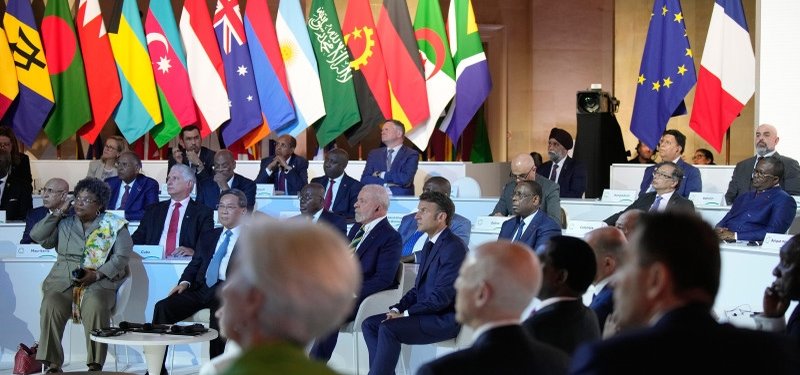
Paris Summit struggles for funding against poverty and climate change
- World
- DPA
- Published Date: 09:43 | 23 June 2023
- Modified Date: 09:48 | 23 June 2023
National leaders as well as heads of international organizations and development banks met at the summit on Thursday and Friday to discuss the global financial architecture and a solidarity-based financial system to tackle climate change and combat poverty.
German Chancellor Olaf Scholz said on Friday, "Many countries, especially in the global South, have major challenges to overcome."
He called for greater cooperation in partnerships for a just energy transition in the fight against climate change.
French President Emmanuel Macron said on Thursday, "No country should have to choose between reducing poverty and protecting the planet."
On Friday, at the end of the two-day meeting, Macron said that a consensus had been reached that the global financial system had to be made more efficient and fairer.
Another major issue discussed was the further development of the World Bank and international development banks.
Better financing is to be created through the cession of special drawing rights. The Special Drawing Right is a reserve asset introduced by the International Monetary Fund (IMF) that gives all member countries additional financial leeway.
The head of the IMF, Kristalina Georgieva, said the goal of raising $100 billion dollars through special drawing rights for distressed countries was achieved.
Large IMF members can cede their drawing rights to poorer countries.
Macron held out the prospect of further financial assistance.
"Our experts tell us that we are now on track to reach $100 billion in climate financing," he said, however, progress on the promise has been too slow, he added.
Progress was also made on the sticking point of debt.
On the summit sidelines, Zambia's committee of creditors is said to have agreed to a restructuring of the southern African nation's debt, by allowing debts to be extended or suspended.
Macron stressed that the aim was to ensure that countries in a debt trap could benefit from a multilateral response.
The summit also discussed a climate clause that would allow debt repayments to be suspended in the event of severe climatic events.
Reactions were divided. Oxfam spoke of a "summit for next to nothing."
The European director of the Bill & Melinda Gates Foundation, Anja Langenbucher, on the other hand, told dpa that the meeting sent an important signal.
"It is no longer possible to imagine the negotiating table without the countries of the Global South. Even more: they are taking a leading role," she said.
- Canada launches probe into Titanic sub tragedy
- Putin hoping for 'long-lasting' war, says Macron
- Pakistan hits out at U.S. and India after Biden-Modi meeting
- UN Security Council members demand probe into Russia-Iran military cooperation
- Kremlin says Putin briefed on situation with Wagner as FSB opens criminal case against Prigozhin

